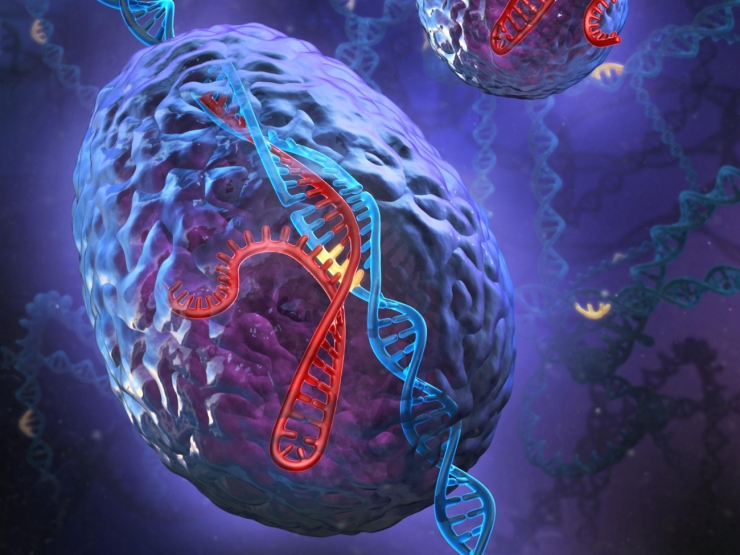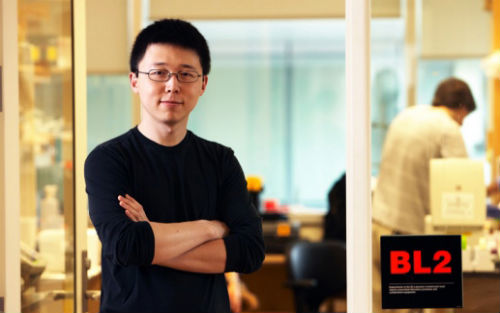
(Source: fiercebiotech)
The battle for patents on CRISPR-Cas9 technology has always attracted the attention of people in the industry. Recently, an e-mail reminded us of the situation. Zhang Feng, one of the heroes of the incident, was actually beaten by the students in his lab.
Let's return to the beginning of the story:
The so-called CRISPR technology, in simple terms, can be understood as gene editing , that is, the genome of the wrong site "modification" to restore normal function of human cells, which, Lei Feng network (search "Lei Feng network" public concern ) has also done a detailed introduction. In 2012, Jennifer Doudna, a biochemist at the University of California, Berkeley, and her collaborators published a seminal paper describing the use of CRISPR to edit DNA in test tubes. Zhang Feng and his team invented a novel CRISPR system that targets RNA instead of DNA. Although Jennifer Doudna, Emmanuelle Charpentier, who is currently working at the Helmholtz Infection Research Center in Germany, and Chinese Zhang Feng, they have made tremendous contributions to CRISPR technology. The first two were original in the basic research of the technology and submitted patent applications seven months earlier than Zhang Feng. However, Zhang Feng, who was later patented, was first granted a patent. Although some people claim that the most likely reason is that Zhang Feng applied for a fast-track patent, the Patent Office granted him intellectual property (IP) 6 months after he submitted the application. However, this has still been controversial among the people in the industry.

(The picture shows Zhang Feng)
Just this week, foreign media announced an email sent to Doudna by former member Shuailiang Lin of Zhang Feng in February 2015. In the email, Lin stated that he was the only member of the Boyd Lab where Zhang Feng was responsible for researching CRISPR in 2011, and said that the CRISPR experiment conducted by Zhang Feng's lab was not successful at the time. In addition, Lin stated that he had records of laboratories and other documents that could prove the failure of the experiment.
This week, the University of California cited a few hundred pages of fierce documents submitted to the Bode Laboratory, citing an email from the former member of the Zhang Feng Lab who wanted to work in the Doudna lab.
The University of California lawyer quoted what Shuailiang Lin said in an email:
“Zhang Feng and others in the lab saw CRISPR's experiment succeeded after seeing the groundbreaking paper that Doudna published in 2012.â€
Lin said that he said these things with Doudna because he hoped he could interfere with the progress of CRISPR patents. Before that, the University of California claimed that the scientists of this university were the real inventors of the CRISPR gene editing technology, and the Bode Institute’s No.
However, the Bode Institute immediately responded to Lin's e-mails on Wednesday this week, saying that the student “had spent a period of time at the Bode Institute through a joint project between Tsinghua University and Peking University.†Reply to other content.
Behind the CRISPR patent war is the game of interests between the University of California (UC Berkeley) and the Broad Institute. Both parties have never been able to satisfy each other on the cake.
Via fiercebiotech
Recommended reading:
High Energy Biology Course | What is CRISPR technology that can edit human DNA and RNA?
The world's first human CRISPR gene editing clinical trial, Chinese scientists next month
Gene editing company wants to go public, but this stupid account is not yet clear